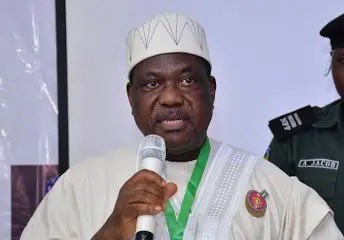The African Climate Change and Investment Pre-Summit, held in Ede, Osun State, served as a crucial platform for stakeholders to address the pressing climate challenges facing the African continent and explore sustainable investment strategies. The Secretary to the Government of the Federation, Senator George Akume, emphasized the government’s commitment to bolstering the agricultural value chain through innovation, climate-smart practices, and sustainable financing. He highlighted the importance of transitioning towards a green economy, recognizing it not only as an environmental necessity but also as an economic opportunity. Investing in climate-smart agriculture, renewable energy, and eco-friendly infrastructure is crucial for building resilience, creating jobs, and fostering prosperity throughout Nigeria and Africa.
Agriculture holds immense potential for climate resilience and food security, particularly in Nigeria, where it is the largest employer of labor. The federal government’s focus on strengthening the agricultural value chain through innovation, climate-smart practices, and sustainable financing aims to mitigate the adverse effects of climate change while driving rural development and national economic growth. This strategic approach recognizes the critical role of agriculture in adapting to climate change and ensuring food security for the nation. Empowering youth and women is central to this transformation, as their active participation is essential for achieving sustainable agricultural practices and building climate resilience.
The pre-summit highlighted the significance of media in amplifying climate action. Mr. Funmiso Babarinde, Senior Special Assistant to the Osun State Governor on Renewable Energy, underscored the media’s role in shaping public narratives and engaging stakeholders. By effectively communicating the urgency and importance of climate action, the media can influence public opinion, drive policy change, and foster a greater understanding of the challenges and opportunities presented by climate change. This underscores the need for accurate, accessible, and engaging information about climate change to empower individuals, communities, and policymakers to take informed action.
Professor Chinwe Obuaku, a consultant to the Osun State Government on Climate Change and Renewable Energy, urged stakeholders to leverage their expertise, insights, and collaborative spirit to make the pre-summit a success. She emphasized the importance of the upcoming conference as a catalyst for positive change in communities and infrastructure, highlighting the need for concrete actions and tangible outcomes. The collective effort of stakeholders is essential for translating discussions and commitments into meaningful actions that address the multifaceted challenges of climate change.
The pre-summit served as a critical precursor to the main conference, setting the stage for in-depth discussions and collaborative efforts to address climate change and promote sustainable investment. It underscored the importance of partnerships between government, private sector, civil society, and the media in tackling climate change and achieving sustainable development goals. The emphasis on climate-smart agriculture, renewable energy, and eco-friendly infrastructure reflects a growing awareness of the interconnectedness between environmental sustainability and economic development.
The commitments made and the discussions held during the pre-summit lay the groundwork for a comprehensive and collaborative approach to climate action in Nigeria and across Africa. The focus on youth and women empowerment, media engagement, and sustainable financing underscores the importance of inclusive and participatory strategies for achieving long-term climate resilience and sustainable development. The pre-summit served as a valuable platform for exchanging knowledge, building partnerships, and setting the stage for transformative action in the face of climate change.














